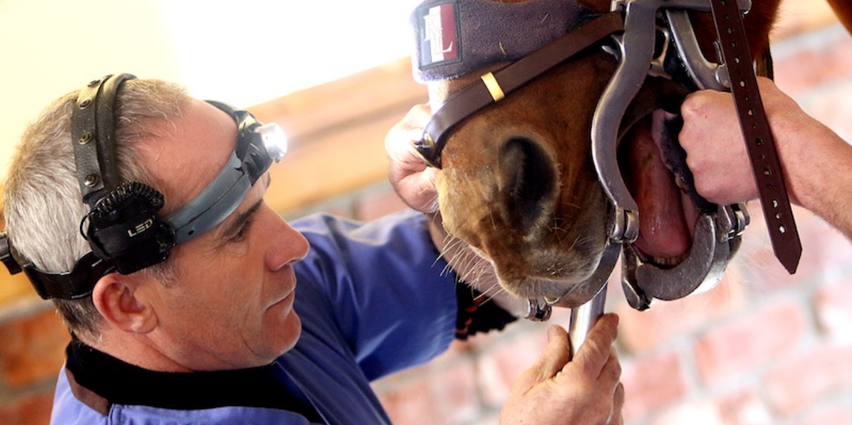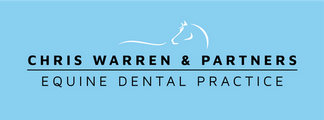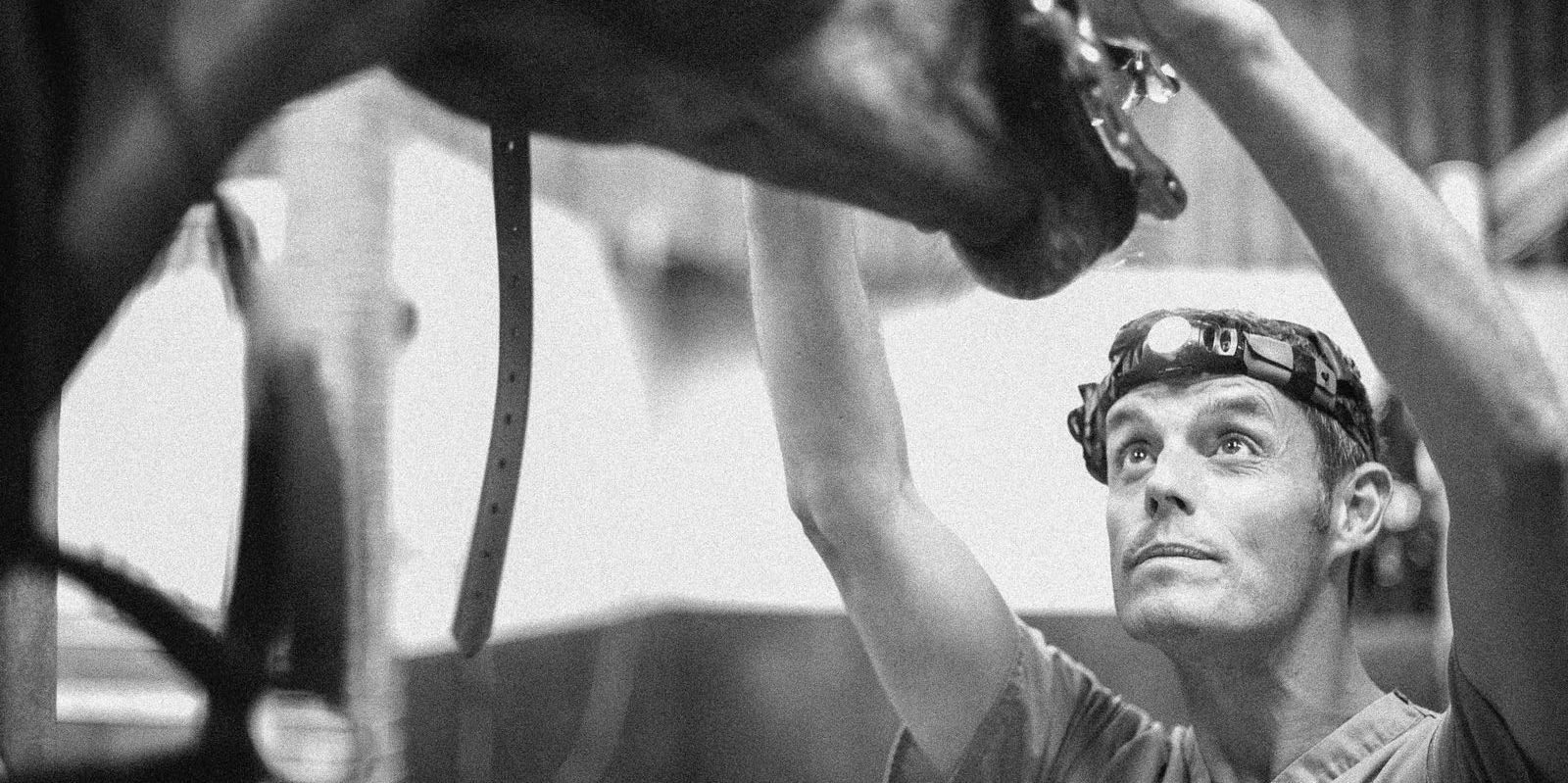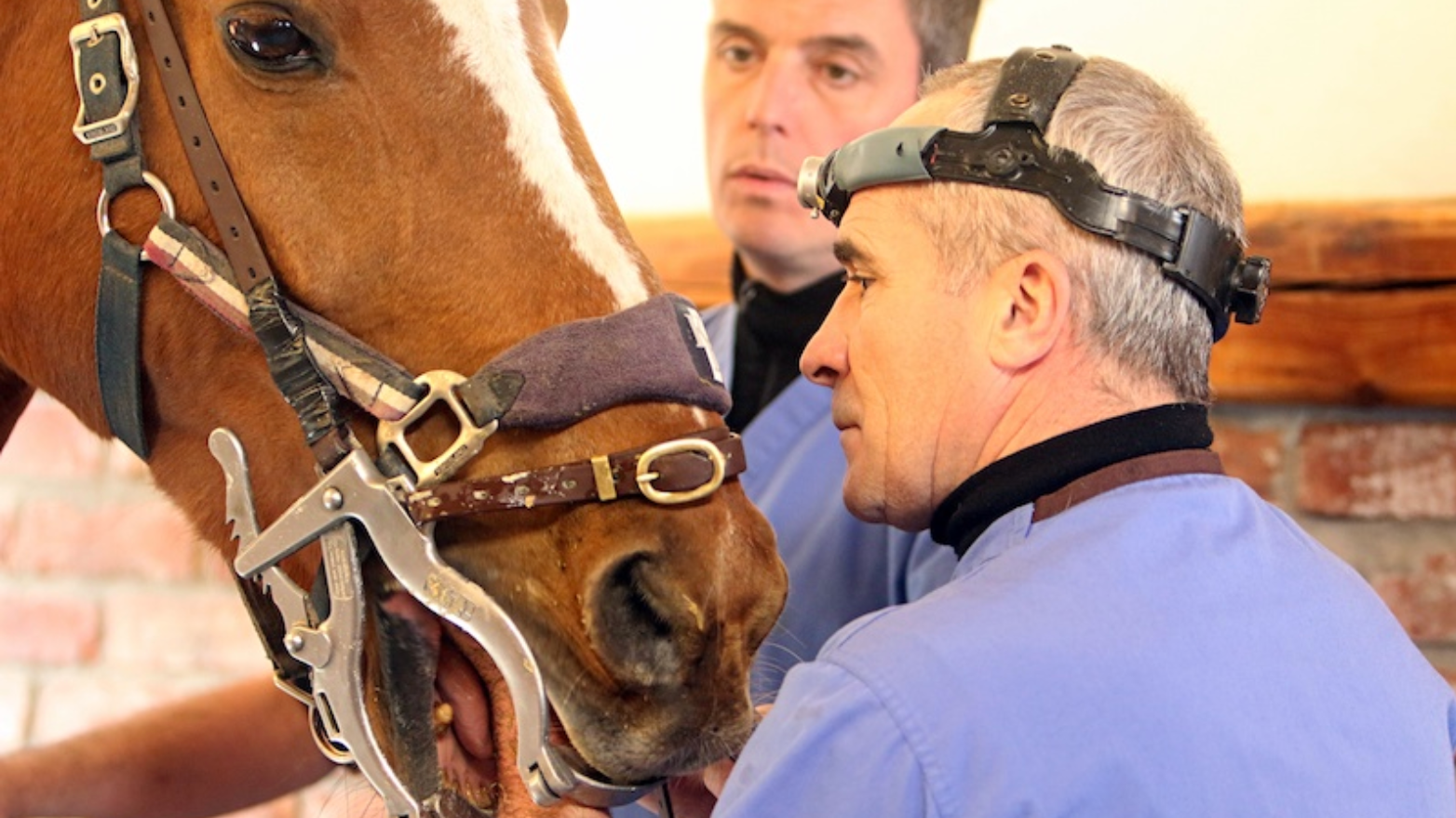
Chris Warren's interview with John Periam from veterinary-Practice.com
https://www.veterinary-practice.com/article/straight-into-the-horses-mouth
JOHN PERIAM talks to two equine dental technicians about their work and their practice which started in the 1990s and now has about 2,000 horses on the books, both in the UK and further afield
CHRIS Warren and his partner Duncan Gipson, both equine dental technicians, run the Equine Dental Practice based at Hickstead in West Sussex.
Chris’s interest in horses developed 35 years ago when he was a National Hunt Jockey, having ridden twice in the Grand National, but a bad injury stopped his career in 1990.
Explaining his career move, he said that he had always been interested in the horse’s mouth and it was through the interest of a top international showjumper, Kevin Bacon, that he was encouraged to look at starting up in the field of equine dentistry. “In those days,” says he, “it was a very grey area of the horse anatomy and often neglected. Checks were only made if there was a problem.
“Learning then was very much left up to me as an individual and I found the best way was to purchase some horses at sales and treat them. I met up with retired professional dressage rider, Duncan Gipson, and we formed a partnership to look at developing an equine dental practice. It was a massive learning curve for us both as we were very much in a profession in its infancy.”
Eventually, equine dentistry became more recognised and it became necessary to take an examination relating to this subject. This was set up by the Worldwide Association of Equine Dentists. There is a set route new candidates must follow; then an assessment followed by an entrance exam and then a level two exam which is the highest level one can take.
Chris continues: “It is something you cannot pick up in a classroom; being out in the field and seeing real case scenarios is what it is all about. Of course there is theory to learn.
“It is one of those things you have to be passionate about and it is very hard work. To date we have trained several new dentists and currently have David Ward, now in his fourth year, learning all about what is required.
“I was very lucky in meeting the late Douglas Bunn, Master of Hickstead, and he could see how dedicated I was in wanting to start up this practice. He supported me from my early days and we now have a treatment area at the All England Jumping Course whilst the office is at home around the corner.”
The practice knows how their year is planned out well in advance and they work closely with the competition horses’ owners. Every six to eight months they get checked to see how comfortable they are with the bit as well as checking that the mouth is functioning efficiently.
“Our role is that of an adviser,” says Chris, “and like most human beings regular dental check-ups make sure that any early signs of problems are diagnosed sooner rather than later.
“We are well aware that we as a practice are equine dentists and not qualified veterinary surgeons. As a result we respect what vets do and in return they respect what we offer.
“We often meet and share cases that may have issues relating to dental problems. Both Duncan and I do a lot of referral work and this takes us across the world working with competition horses that we have an affinity with.
“Sedation is very rarely used for routine treatment; however, for remedial work sedation is often necessary and we use a local veterinarian. For example, last April four of us visited several stables in Oslo and looked at a large number of horses, sedating only when necessary.”
Currently, the practice has about 2,000 horses they visit on a regular call cycle from Scandinavia to the West Indies, not forgetting the UK. “We have to guarantee them the treatment they deserve, and if needed will fly out just to see one horse.”
Most dental injuries to horses are related to those caused by the bit. “We were on a television programme treating one of Peter Charles’ horses [Peter won a gold medal at the 2012 Olympics in London] which showed what can happen. We also look after Olympic Eventing medallist Tina Cook and her brother Nick Gifford’s racing stables at Findon. They have now used us for over 18 years, which is a good recommendation.”
Top showjumper William Funnell and his wife Pippa said, “We only use Chris because he is the very best and he has shown us just how important dental care is when it comes to looking after our horses.”
The most common problem is the Incisor malocclusion. Partners Duncan Gipson (left) and Chris Warren. Below: Chris’ unusual numberplate. removal of sharp hooks and edges from teeth. Chris specialises in the treatment of diastema (when the jaw is out of line). “The horses we deal with are very far removed from nature: they look nice, jump high, and then people breed from them.
“A horse is designed to eat roughage for 16 hours, but in a domestic environment horses can be chewing as little as a third of this time. What happens is that the teeth are not getting the wear they should and that is when we have to intervene when necessary for performance and comfort.”
Duncan adds: “There will always be accidents and the practice has had and seen its fair share of them – from horses involved in road incidents to others that have collided with stable walls.
“Each morning when we start another day we never know what to expect; that is what makes our work just that bit different.”


